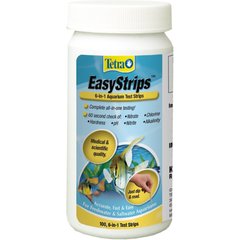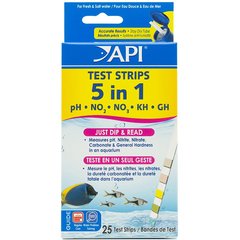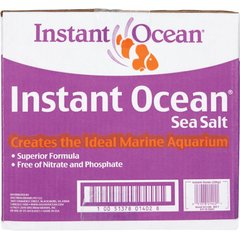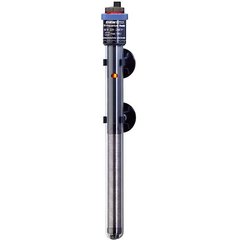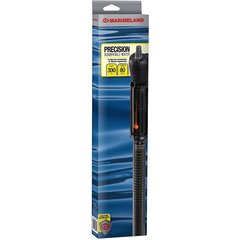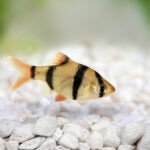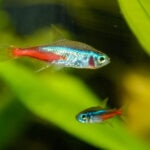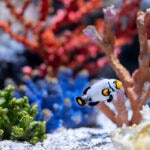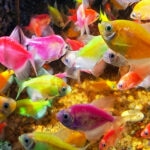Fish Shimmies: What It Is and How To Treat It

Photo by Mirko_Rosenau/Getty
What Are Fish Shimmies?
Fish shimmies are a symptom rather than a disease. Dr. Mollie Newton, DVM, in Columbus, Ohio, says shimmies are characterized by shaky swimming. This behavior may not be immediately noticeable in active species, like tetras, and it may come and go. Affected fish may shake, twitch or rock their body for short periods of time and otherwise swim normally.
Shimmying is an indication that the fish’s nervous system has been compromised. You may notice other behavioral changes such as:
- head shaking
- clamped fins (aka holding their fins closer to their body than usual)
- labored breathing
Changes to the fish’s physical appearance may also occur, but these can vary depending on the underlying cause of the shimmies. For example, fish who are stressed by high ammonia levels may also exhibit red streaks on the body and gills or cloudy eyes.
Because shimmying is a neurological response to stress, any fish can develop shimmies. There are, however, some fish who appear to be genetically predisposed. Livebearing tropical fish like mollies, platies, swordtails, and guppies are especially prone to shimmies, while other species like platies and swordtails may also be affected.
Some experts suggest certain livebearers are predisposed to shimmies due to the way they’re bred and raised. Fancy mollies, for example, are typically bred overseas in brackish conditions where both the pH and general hardness (GH) levels of the seawater are high. In the home aquarium, however, these fish are frequently kept in freshwater.
Keeping aquarium fish in water conditions that aren’t ideal for their species or that differ significantly from the conditions in which they were originally raised can cause severe stress. Over time, chronic stress can tax the nervous system and cause the fish’s body to break down. Shimmies can be an indication of this process.
Why Is My Fish Shaking?
Shaking is a natural courtship behavior for many aquarium fish, particularly cichlids. When it occurs outside of breeding rituals or lasts more than a few seconds at a time, however, it is more likely to be shimmies—particularly when it is accompanied by other changes in behavior.
Behavioral changes are often an early warning sign of a developing problem in the aquarium. If your fish start swimming erratically, it’s time to break out your aquarium water test kit.
Dr. Newton suggests the following factors as some of the most common causes of fish shimmies:
- Poor water quality
- Low water temperature
- Low pH or water hardness
- High chlorine levels
- Toxins in the water
- Internal bacterial infection
The first step in determining the underlying cause of fish shimmies is testing the water chemistry. While the recommended water parameters vary from one species to another, all aquarium fish require low ammonia and nitrite levels—as close to 0 ppm as possible. In a properly cycled freshwater aquarium, nitrifying bacteria convert toxic ammonia and nitrite into nitrate. Nitrate levels should remain under 50 ppm, but some nitrate is expected in a balanced aquarium.
If the water chemistry in your fish tank appears to be fine, the next possibility is an issue with either the pH, hardness or temperature. Low pH, for example, may cause shimmies in mollies and other livebearers that are used to alkaline rather than acidic water. High pH is typically correlated with high GH, so it’s possible that your tank water is too soft. While fish don’t shiver when they get cold, low tank temperature can be stressful for tropical aquarium fish and may cause shimmies.
Outside of issues with water chemistry or tank parameters, shimmies could be caused by toxins in the water or underlying health problems affecting your fish.
Recommended Products
How To Treat Fish Shimmies
Successful treatment of aquarium fish shimmies depends on proper diagnosis of the root cause. Regardless of the cause, however, Dr. Newton recommends isolating the fish in a hospital tank, aka a tank separate from your healthy fish where your sick fish can quarantine and recover, as the first step. In some cases, adding aquarium salt can be beneficial for recovery. Dose the hospital tank with 1 tablespoon of aquarium salt per 5 gallons of water.
Recommended Products
Now, on to common causes of fish shimmies:
1. Poor Water Quality
Water changes are essential for improving water quality, as is strong filtration. As long as your fish are safely housed in a quarantine tank, you can perform water changes as large as 50 percent of the tank volume. Just be careful not to disturb the substrate or clean the filter at the same time to avoid killing too much of the beneficial bacteria in your tank.
Avoid using water treatments to neutralize ammonia or to address other issues with water quality. These treatments offer temporary solutions, at best. At worst, they have the potential to destabilize your tank and contribute to other problems. As you work to improve the water quality in your tank, test it regularly to determine when it’s safe to reintroduce your fish.
2. Inadequate Tank Conditions
Low or unstable tank temperature can easily be remedied with an aquarium heater that has a built-in thermometer. While some submersible heaters are programmed to maintain a specific temperature, many heaters come with a thermostat you can adjust.
Recommended Products
Issues with pH and water hardness can be trickier to remedy. Start by testing your water’s pH and general hardness to determine your starting point. If you need to increase the pH, try adding crushed coral or dolomite gravel. For minor adjustments, you can add it to your filter in a mesh bag. If larger adjustments are required, you can use it as a substrate in your tank. This may increase the water hardness as well, but if the water is still too soft you can try adding calcium carbonate.
3. Toxins
If you suspect your fish has been poisoned by some kind of toxin, the first step is to identify the toxin. Perhaps you used cleaning products too close to the tank or added some kind of medication or treatment that affected the water chemistry. Even an excess of uneaten fish food can be toxic if it breaks down and causes an ammonia spike.
To remove toxins from your tank, you’ll need to perform significant water changes. It may also help to add activated carbon media, such as Marineland Black Diamond Activated Carbon, to your filter.
4. Underlying Health Problems
Dr. Newton says that when shimmies are a symptom of underlying disease, it’s important to get the diagnosis correct. Take note of any behavioral symptoms as well as physical indications of disease. Bacterial infections can often be treated with antibiotic medications, while fungal infections may require anti-fungal treatments. Different parasite infestations may require specific treatments. Find out more about common tropical fish diseases.
Reintroducing Your Fish
Once you’ve resolved the issue or treated the disease, take care when returning your fish to the tank. Immediately transferring the fish could shock their system and make matters worse. Aquarium experts recommend the drip method of acclimation.
Follow these steps to slowly acclimate your fish:
- Place your fish in a bucket or container with water from the hospital tank.
- Set the bucket on the floor or on a surface lower than the tank.
- Take a piece of airline tubing, such as Penn-Plax Standard Airline Tubing, and submerge one end in the tank—you may want to clip or tape it to the tank so it doesn’t fall out.
- Tie a loose knot in the middle of the tubing.
- Suck lightly on the other end of the tubing to start a siphon.
- When water starts flowing, tighten the knot in the tubing until the water is slowly dripping.
- Let the siphon drip until you’ve added an equal volume of tank water to the water in the bucket.
- Carefully net your fish and add them to the tank.
Preventing Fish Shimmies
Because shimmies are a symptom of severe stress, the key to prevention is maintaining ideal tank conditions to keep your fish happy and healthy.
According to the Merck Veterinary Manual, improper nutrition is one of the most common contributors to aquarium fish diseases. Nutrient deficiencies can contribute to a depressed immune system, liver and kidney problems, poor growth and impaired metabolism. Feed your fish a diet appropriate to their species and avoid overfeeding. Not only can overfeeding contribute to health problems, but also the uneaten food will decompose and negatively impact the water quality in your tank.
Here are some other ways to help prevent your fish from becoming stressed:
- Avoid aggressive tank mates. Keep peaceful community fish with species of similar temperament and size. Do not keep small or shy fish like angelfish with large, aggressive species like cichlids. For aggressive and semi-aggressive fish like betta fish, keep only one male in the tank.
- Decorate the tank appropriately. Provide your fish with places to hide, if they need them, and decorations to break up sightlines between aggressive or territorial species.
- Keep the water quality high. Test your water chemistry on a weekly basis and perform water changes as needed to keep ammonia and nitrite levels at 0 ppm.
- Invest in high-quality equipment. A good filter and a reliable heater are essential to maintaining stable tank parameters. Check your equipment at least once a month to make sure it is working properly and have a backup available, just in case.
In addition to testing your tank water on a weekly basis, spend some time observing your fish at feeding time. It’s important to get an idea of what normal behavior for your fish looks like so you can more easily spot behavioral changes that might indicate a problem.
Other Livebearer Fish Diseases
Fish shimmies fall under the heading of a livebearer disease, a generic term used to describe the various ailments commonly seen in livebearing tropical fish.
Other diseases that commonly affect livebearers include:
- Wasting Disease: Typically caused by internal parasites, wasting disease is characterized by progressive weight loss and terminal organ damage.
- Intestinal Worms: When a fish’s immune system is weakened by stress, they become more susceptible to parasite infestations.
- Fin Rot: A bacterial disease that causes the fins and sometimes the tail to become ragged, fin rot can be treated with antibacterial medication.
- Fungal Infection: These infections usually present with cottony growths that form on the fish’s body and can be treated with organic dyes like malachite green.
- Columnaris: Also known as mouth fungus, this disease is actually caused by a bacterial infection and should be treated with antibiotics.
Not sure what supplies you need to keep your fish healthy? We’ve got the full guide.
Expert input provided by Dr. Mollie Newton, DVM, in Columbus, Ohio.

